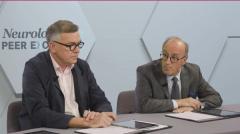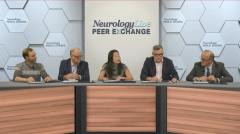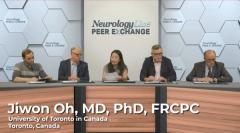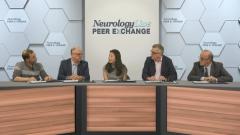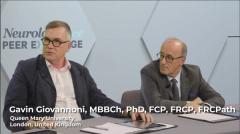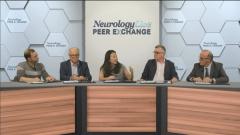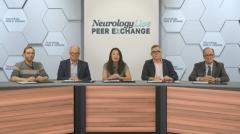
Phase II Clinical Trial: Evobrutinib
Patrick Vermersch, MD, PhD, summarizes phase II clinical trial of evobrutinib for the treatment of multiple sclerosis.
Episodes in this series

Jiwon Oh, MD, PhD, FRCPC: We're going to now move into talking a little bit more about some of the clinical data that are already available. Earlier in this program, Patrick gave a very nice overview of the many different BTK [Bruton’s Tyrosine Kinase] inhibitors that are under investigation right now in multiple sclerosis [MS]. Why don't we start by discussing some of the available data from the phase 2 clinical trial of evobrutinib. Patrick, can you give us a brief overview of what this study looked at and what the results were?
Patrick Vermersch, MD, PhD: Yes, indeed. We accumulated quite a lot of information concerning the impact of evobrutinib, both clinically, but also radiologically. The core study of the phase 2 trial already published compared different doses of evobrutinib: 25 mg once daily, 75 mg once daily, and 75 mg twice daily vs placebo for a short period of time—24 weeks. The primary endpoint was the cumulative number of gadolinium-positive lesions from week 12 through week 24, and the primary endpoint was met with quite a very important decrease of this number of new gadolinium-enhancing lesions during this period.
Also, the key secondary endpoints showed a very low relapse rate, 0.08, for the high dose, 75 mg twice daily. The radiologically and clinically optimal dose for evobrutinib is 75 mg twice daily. Also, we have very interesting data from the extension period, and we have now up to 5 years of data.
After 24 weeks, of course, patients on placebo switched to low dose, and after 48, all the patients switched to the optimal dose of 75 mg twice daily. What we will see, first of all, up to 5 years, there was a very low number of new T2 lesions, a very low number of new gadolinium-enhancing lesions, and the relapse rate remains very low, around 0.01, so maybe one relapse every 10 years at a minimum, which is quite impressive.
If you look at both the relapse and the disability progression, we have up to 5 years with no qualified relapse and no confirmed disability progression on EDSS; 87% up to 5 years. Interestingly, considering the impact of BTK inhibition into the central nervous system, it's great to also the impact on the cell during part of the disease, the patient related outcomes. What we have seen even early during the core period until week 48, we have quite an impact if we consider for example some subscales of the SF-36. For example, vitality and mental health, we have a significant impact vs placebo and the low dose of evobrutinib, which I think it's interesting in a short period of time.
If we look at the conversion from VITALITY to PROMIS MS fatigue, which is now a very good patient-reported outcome, I think, to evaluate fatigue in patients, we have also a significant impact on fatigue with evobrutinib very early.
Jiwon Oh, MD, PhD, FRCPC: Thank you, Patrick.
TRANSCRIPT EDITED FOR CLARITY
Newsletter
Keep your finger on the pulse of neurology—subscribe to NeurologyLive for expert interviews, new data, and breakthrough treatment updates.

